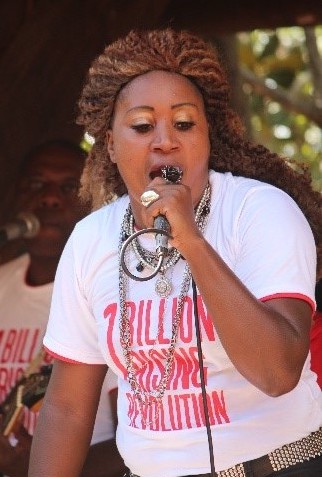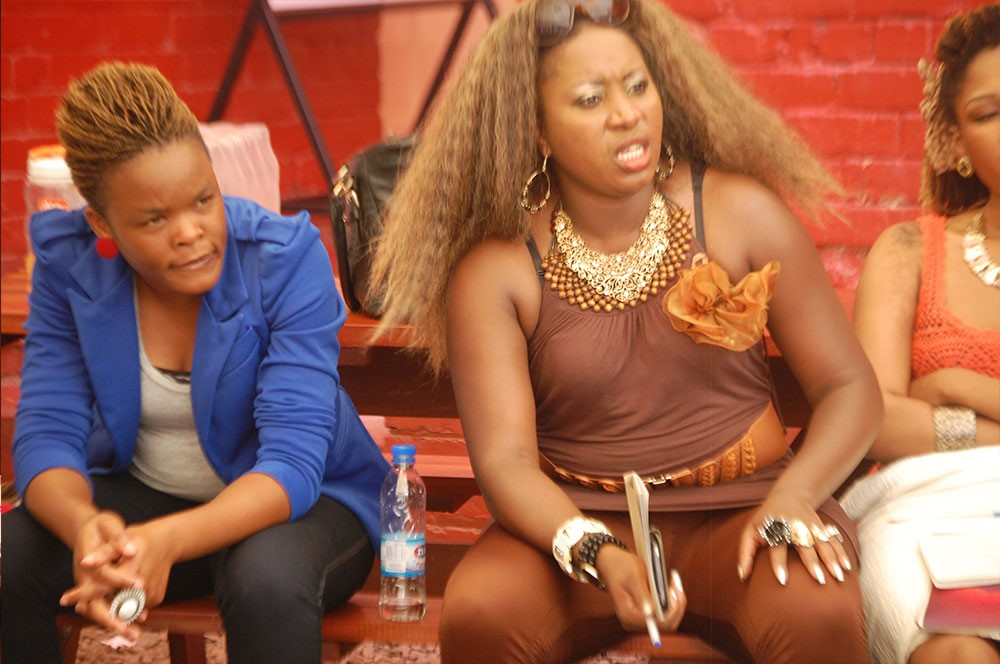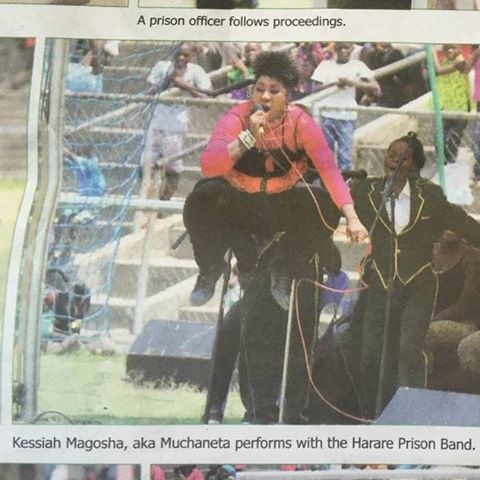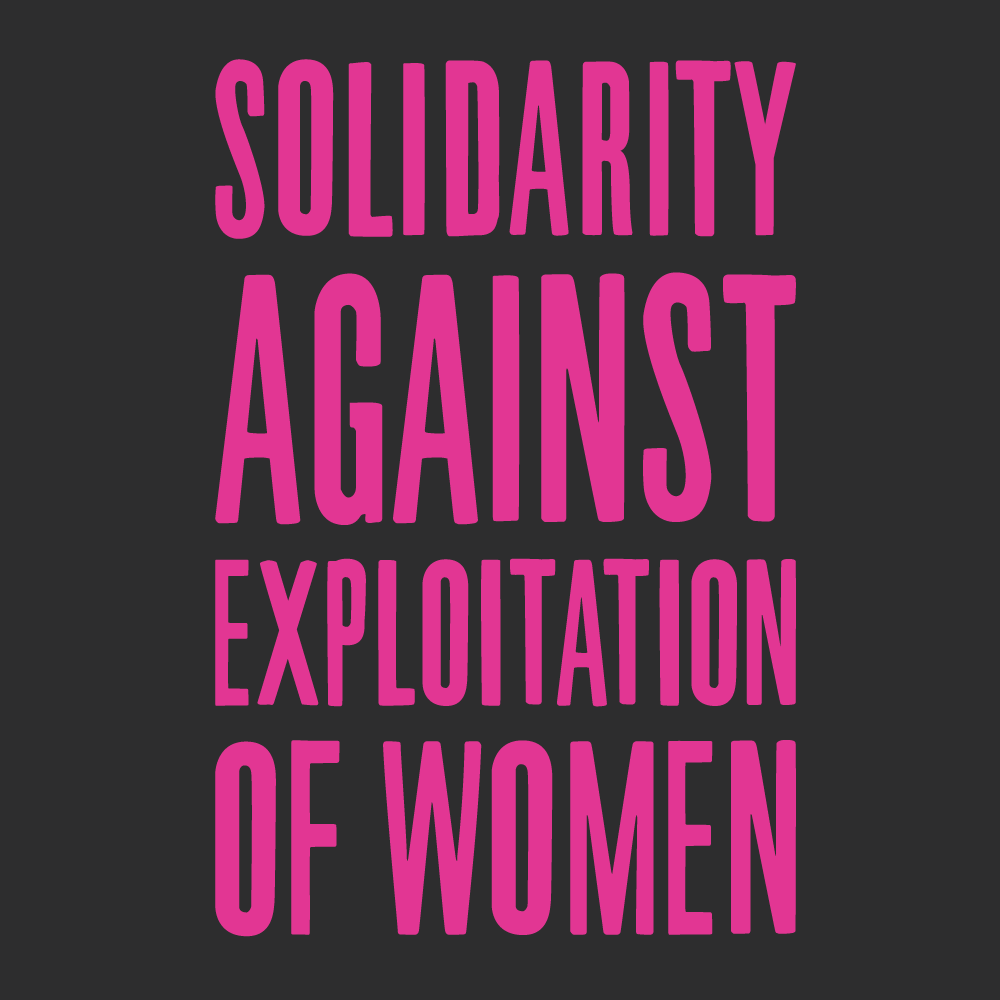 For the past three years I have been part of the One Billion Rising Campaign in Zimbabwe. My first interaction with the campaign as an artist was when I was asked to perform a song for a visual exhibition launch at the Book Café, an artist’s hub which was essential to the growth and partnership of the rising with key female artists for the past four years in which the rising has been conducted.
For the past three years I have been part of the One Billion Rising Campaign in Zimbabwe. My first interaction with the campaign as an artist was when I was asked to perform a song for a visual exhibition launch at the Book Café, an artist’s hub which was essential to the growth and partnership of the rising with key female artists for the past four years in which the rising has been conducted.
As an artist, I grew from learning that my involvement within the campaign was essential for giving back to my community and fans. I became a message bearer to the people as the campaign gave me a platform for voice out against forms of abuse against women and girls.
Each year the rising brings in a new theme which focuses on sending out a message across the globe on ending violence against women. Through the campaign, this is a war I believe the women of this world will fight and win. This year, I feel as if the theme was developed with artists in mind. A lot of the work which artists do is not largely perceived as decent work even by our own fans. As is, the space in which artists operate in is infested with abuse. Reflecting on the 2017 theme I realised that solidarity might be the essential component with which we need to tell our story.
The Gory picture of being a Female artist
I am a multi-talented artist working and earning a living as a musician, comedian and an actress. For as long as I can remember, I have done all I can to grow my talent and to penetrate through the markets of the different art which I’m involved in. I love what I do but it comes with a price. For a long time, I have been subjected to a lot of environments that make me vulnerable to abuse simply because female artists are not taken seriously in Zimbabwe. We are perceived as promiscuous because sometimes we have to perform at night. That is culturally sneered at because Zimbabwe is a highly patriarchal society which believe that women belong at home and in the kitchen.

Conducting a round table discussion for the One Billion Rising for Justice Campaign
in 2014 with other female artists at the Book Cafe
Thus, in such a set up some male fans feel that they are entitled to groping us during performances or calling us names whilst we are on stage. This is highly demeaning as a lot of female artists give up on their careers due to this. Adding on, due to the high competitiveness of the music industry and the art sector in general, we have promoters and men taking advantage of young and vulnerable artists who are desperate to make it. This is a story that is told in hush tones in Zimbabwe. I feel that the promoters and men who ask for sexual favours to prop up upcoming female artists as well as established ones must be exposed. I refuse this we can’t have men controlling a few resources so that they exploit us. This is exploitation at its worst. The Zimbabwean population needs to realise that being an artist is a career in the same way someone takes up teaching, nursing, singing, and even engineering. Therefore, we must be awarded the same levels of respect and we should be free from exploitation in our engagements as artists.
Solidarity for Female Artists
Against this background, solidarity amongst female artist must be the voice of power which we must use to derail some of the negative perceptions about female artists which make us susceptible to abuse in our line of work. Solidarity come in different forms to me. Firstly, it is where I get my solid confidence to speak out against any form of violence against women through my music, dance and song. It also builds on the network of my other artist sisters who are also keen to speak out against these ills. Secondly, just by coming together in sisterly love as artists, I believe we can achieve a lot. The more established female artists have a responsibility to assist the younger sisters so that they do not fall prey to the dangers of this industry. We have to desist from shamming younger sisters who are exploited by the male gatekeepers of the arts industry for them to access opportunities for them to make it.
Keep Dancing
This campaign is therefore bringing more than just solidarity for me. We will continue to dance in solidarity in wake of such things happening. I am hoping that as we rise in solidarity in 2017, we will also have stretched the female arts industry to begin to speak out some more against exploitation without a fear of loss of opportunities. Women must be strong enough to speak out against exploitation and we can do it through our dance. We will speak out with our dance since it is our solidarity. My vision for 2017 is to create an organised Female Artist Network which will begin to build more and more solidarity around exploitation of female artists. Our trade must be dignified and when that is achieved then we push to use our solidarity effectively. Women must support each other that is the basis of our existence and nothing else.

Performing with the Harare Prison Band
 1 in 3 women across the planet will be beaten or raped during her lifetime. That’s ONE BILLION WOMEN AND GIRLS. Every February, we rise – in hundreds of countries across the world – to show our local communities and the world what one billion looks like and shine a light on the rampant impunity and injustice that survivors most often face. We rise through dance to express joy and community and celebrate the fact that we have not been defeated by this violence. We rise to show we are determined to create a new kind of consciousness – one where violence will be resisted until it is unthinkable.
1 in 3 women across the planet will be beaten or raped during her lifetime. That’s ONE BILLION WOMEN AND GIRLS. Every February, we rise – in hundreds of countries across the world – to show our local communities and the world what one billion looks like and shine a light on the rampant impunity and injustice that survivors most often face. We rise through dance to express joy and community and celebrate the fact that we have not been defeated by this violence. We rise to show we are determined to create a new kind of consciousness – one where violence will be resisted until it is unthinkable.
This year we are Rising In Solidarity Against the Exploitation of Women. We are initiating a new series, “RISING SOLIDARITY” where we will be sharing stories of extraordinary activists from around the world about their experiences with true solidarity, harnessing a deeper understanding of why it is critical in the fight against systems of oppression and exploitation. Providing both regional and global context for what it means to stand in solidarity with each other.